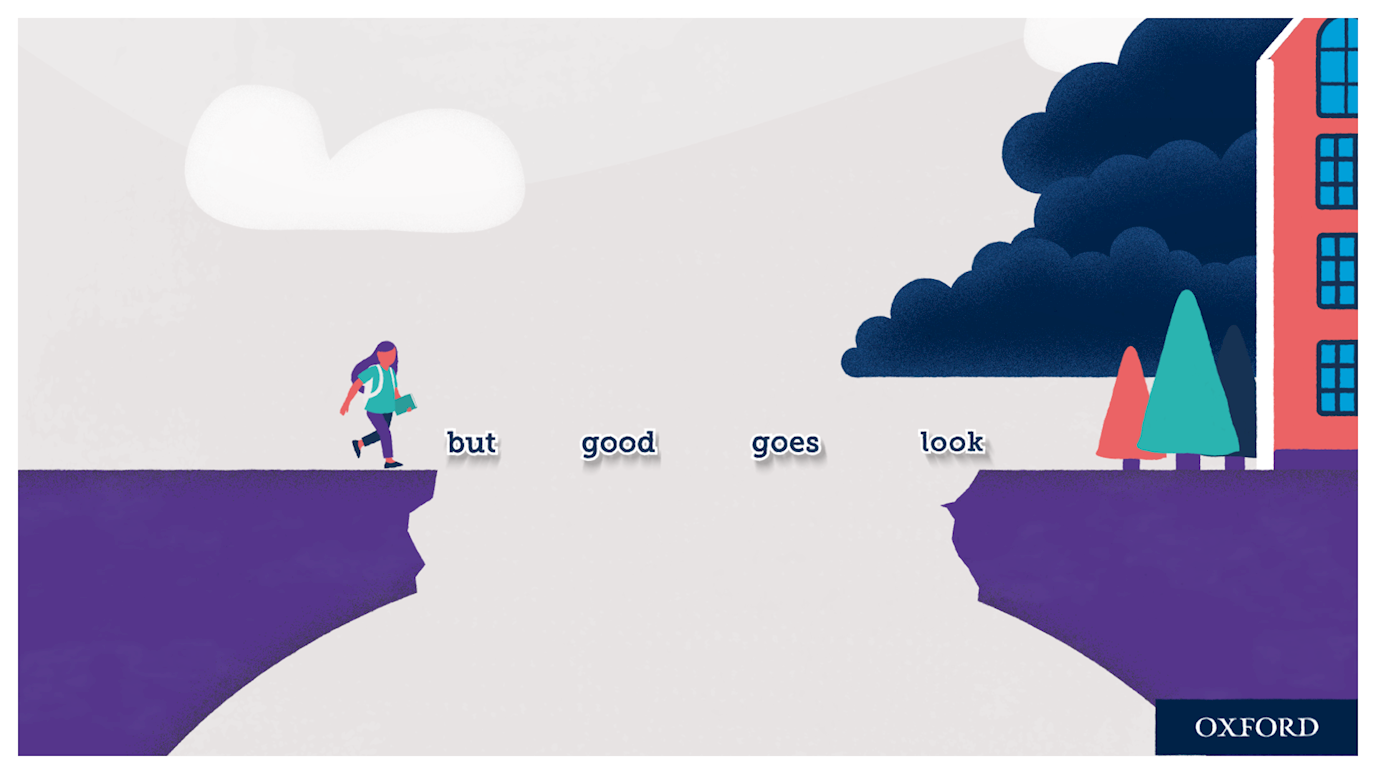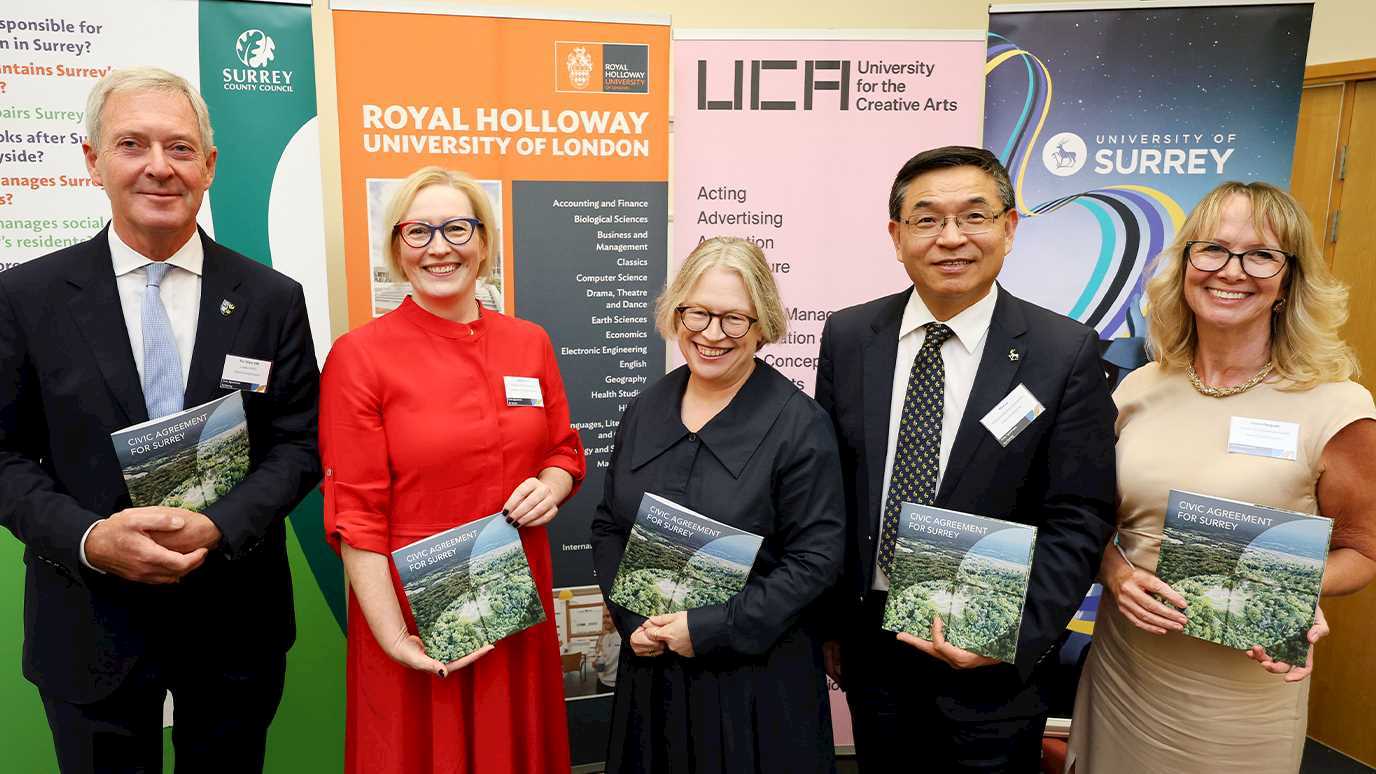Oxford University Press (OUP) and the Centre for Education and Youth (CfEY) have announced the findings of educational research in the latest Oxford Language Report: Bridging the Word Gap at Transition.

Dr Jessie Ricketts from the Department of Psychology and the Director of Language and Reading Acquisition (LARA) research lab at Royal Holloway, University of London, has been working with OUP and CfEY on the report.
The new research has found that 87% of teachers are concerned that increasing academic requirements at transition from primary to secondary school highlight pupils’ difficulties with vocabulary. Meanwhile, 92% of teachers believe that this ‘word gap’ – where children have a vocabulary below age-related expectations – has widened further following school closures brought about by the Covid-19 pandemic.
Dr Jessie Ricketts from the Department of Psychology at Royal Holloway, said: “Our research has shown that in secondary school vocabulary knowledge is extremely variable. At the top of the spectrum there are young adolescents who have adult levels of vocabulary knowledge. However, at the other end of the spectrum there are pupils who have the vocabulary knowledge of an average pupil aged six to nine. These pupils have gaps in their everyday language which will hamper their understanding in class and they will struggle to access the secondary curriculum.”
As children transition from primary to secondary school, there is an expectation that they will be able to use and understand a range of more academic but non-subject-specific words such as summarise, compare, analyse, factor, influence and cause. These types of words (known as Tier 2 words) are essential for academic achievement.
Of the teachers questioned, 47% said their pupils are ‘not at all confident’ in using general academic vocabulary at the point of transition. When broken down, the problem takes on further significance at a secondary level with twice as many secondary (64%) as primary school teachers (32%) saying pupils are ‘not at all confident’ in using general academic vocabulary.
School closures have also negatively impacted teachers’ ability to support students with their language learning this year, with 94% of teachers saying that they have found it challenging to support pupils’ vocabulary development while teaching remotely.
Based on a significant body of research, including over 3,500 survey responses from UK teachers working in a variety of roles and subject areas and across different phases of education, the report reveals evidence of a significant word gap for pupils transitioning from primary to secondary school and examines what educators are doing to close the gap.
Key findings:
• 87% of teachers agree that increasing academic requirements at transition from primary to secondary school highlight pupils’ difficulties with vocabulary.
• 80% of teachers believe that difficulties with vocabulary lead to a lowering of pupils’ self-esteem and an increased risk of poor behaviour and dropping out of education.
• 80% of primary school teachers describe vocabulary as a high strategic priority. This drops to 50% at secondary school.
• While secondary schools are more likely than primary schools to use defined whole-school vocabulary programmes, only 1 in 20 secondary schools say their programme is ‘very effective’.
• Only one in four teachers has access to training or continual professional development (CPD) from external experts and language specialists. More than half of those who did have access to external CPD rated it as ‘very helpful’ for supporting their pupils’ vocabulary development.
• Over half of teachers questioned say that a lack of time hampers efforts to improve pupils’ vocabulary.
• 77% of teachers consider parents and carers to play the most important role in developing a young person’s vocabulary.
OUP conducted the research with The Centre for Education and Youth in order to quantify the scale of the word gap at transition from primary to secondary school, furthering work initiated in 2018. The first Oxford Language Report: Why Closing the Word Gap Matters (2018) started a national discussion, with schools, parents, policy makers, and researchers exploring how better to support pupils’ vocabulary development. The latest report delves into the issue at the transition between primary and secondary and asked teachers specifically about the impact Covid-19 related school closures has had on vocabulary learning.
Why is there a word gap?
Research shows that primary and secondary schools use vocabulary in different ways which can lead to difficulties for pupils and gaps in knowledge or understanding going under the radar. At a primary level, vocabularly is perceived by teachers as being most important for social communication and emotional expression/wellbeing. As pupils move to secondary school, teachers increasingly link the importance of good vocabulary to academic achievement and preparing for the world of work.
Jane Harley, Policy and Partnership Director, Oxford Education at Oxford University Press, said: “Moving from primary to secondary school is a major milestone in every child’s life. While secondary school brings a wealth of new opportunities, pupils also need to grapple with the challenges of increased academic workload and exposure to up to four times as much new vocabulary as at primary school. For pupils with a ‘word gap’, or a vocabulary that is below age-related expectations, this poses significant problems.
“The Oxford Language Report 2020 aims to address the issue by exploring the changing demands on pupils’ use and understanding of vocabulary as they progress through school. It highlights the negative impact of a widening word gap on learning and future life chances and explores recommendations from schools and language experts as to what strategies, policies, and activities can be employed to counteract its damaging effects. This is a critical time for a focus on vocabulary development, particularly in the context of Covid-19 and the much-publicised broadening of the attainment gap.”
Bridging the word gap at transition
In order to bridge the primary–secondary school word gap, OUP is calling for a greater consistency of curriculum and practice between primary and secondary schools. There needs to be more space in the curriculum to help pupils develop the academic language they need at secondary school, and more training and support to be available for teachers. Where training or continuing professional development (CPD) from external experts has been made available research shows that more than half of teachers found it to be ‘very helpful.’
Drawing on expert advice and educators already engaging with the issue, the report recommends ways in which the Department for Education can raise awareness of the expectation of language at secondary school and support teachers in the drive to secure good vocabulary for all pupils, particularly during transition. These include:
• Promoting an increased focus on general academic vocabulary for pupils preparing to move from primary to secondary school
• Sharing best practice within schools and between primary and secondary schools
• Improving links between schools and home in order to make clear the vital role that parents and carers play in ensuring children have the vocabulary they need to successfully navigate the transition to secondary school.
To access the full report, available online from today, Friday 23 October 2020, please visit the OUP website here: oxford.ly/wordgap and to get involved in the debate use the #wordgap hashtag.
























